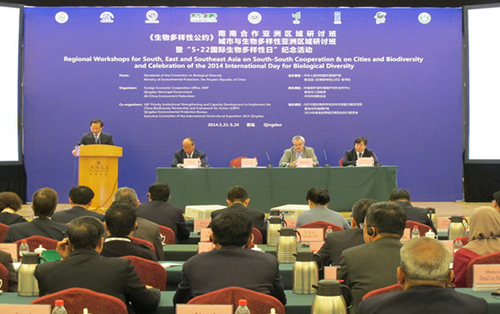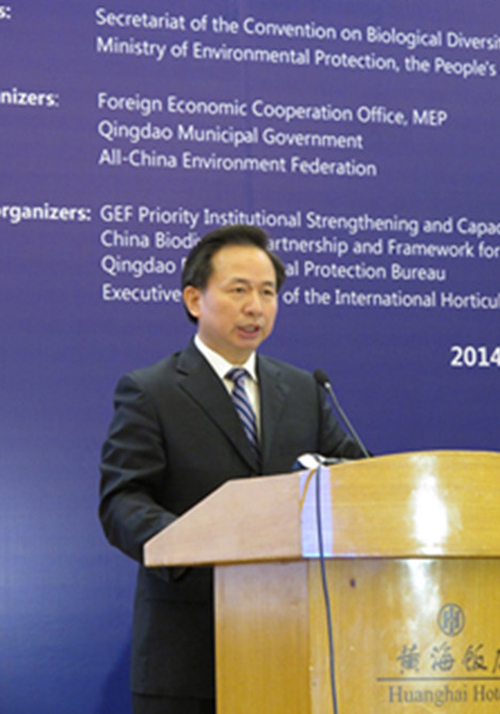Celebration of the 2014 International Day for Biological Diversity held in Qingdao
Updated: 2014-05-22
|
|||||||||
 |
|
Braulio Ferreira de Souza Dias, executive secretary of the Convention on Biological Diversity attended the ceremony. |
The Regional Workshops for South, East and Southeast Asia on South-South Cooperation & on Cities and Biodiversity and Celebration of the 2014 International Day for Biological Diversity was held on May 21 in Qingdao. The United Nations has proclaimed May 22 as International Day for Biological Diversity (IDB) to increase understanding and awareness of biodiversity issues. It is celebrated annually.
 |
|
The Regional Workshops for South, East and Southeast Asia on South-South Cooperation & on Cities and Biodiversity and Celebration of the 2014 International Day for Biological Diversity was held on May 21 in Qingdao. |
Signs of China National Biodiversity Protection Committee and cards of Chinese Ten River Aquatic Organisms were formally issued on the ceremony.
 |
|
Li Ganjie, deputy director of Qingdao Environmental Protection Department attended the ceremony. |
Biodiversity is the degree of variation of life forms within a given species, ecosystem, or entire planet. Biodiversity is a measure of the health of ecosystems. It is in part a function of climate. In terrestrial habitats, tropical regions are typically rich whereas Polar Regions support fewer species. (With material from: Wikipedia)



